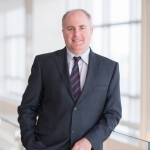Team Members ()
Insights ()
News ()
Pages ()
Services ()
Striking a Balance: Freedom of Expression & Professional Obligations
Published:
September 18, 2023
Author(s):
Updated September 13, 2024
In its August 23, 2023 decision in Peterson v. College of Psychologists of Ontario, the Ontario Superior Court of Justice canvassed the limits of a regulated professional’s individual right to free expression under Canada’s Charter of Rights and Freedoms and the parameters of a regulator’s jurisdiction to regulate their “off-duty” conduct. The Court’s decision is a reminder that holding a license to practice a regulated profession is a privilege. It enables professionals to engage in certain activities from which members of the public are generally prohibited, such as diagnosing and treating conditions or diseases or advising clients on real estate transactions, legal matters, investing, or accounting. Regulated professionals often occupy a position of trust in society due, in part, to the rigorous licensing and continuing competence requirements their regulatory bodies impose on them. But they also have corresponding duties and obligations to both the public and their regulators – that don’t end simply because a regulated professional is “off duty”.
Here’s a look at the conduct in issue, the regulatory and Court decisions, and the key take-aways for both professional regulators and regulated professionals.
The Allegations
Dr. Jordan Peterson is a licensed psychologist in Ontario. In 2018, the College of Psychologists of Ontario began to receive complaints alleging Dr. Peterson’s public comments were inappropriate because they included sexist, racist, and transphobic rhetoric. The College informed Dr. Peterson that the content of his public statements was concerning and could reflect poorly on the psychology profession. The College advised (but did not order) Dr. Peterson to undergo professional coaching to assist him to tailor his public statements to comply with professional expectations. However, in early 2022, the College received additional complaints about statements Dr. Peterson had made on social media and during public interviews in which he identified himself as a “clinical psychologist”, including:
- A tweet stating, “Remember when pride was a sin? And Ellen Page just had her breasts removed by a criminal physician.” In response to Elliot Page being “proud” to introduce a trans character on a TV show.
- A tweet commenting on a Sports Illustrated Swimsuit Edition cover with a plus-sized model stating, “ Not Beautiful. And no amount of authoritarian tolerance is going to change that.”
- An interview during which he commented, “it’s just poor children, and the world has too many people on it anyways.” While discussing childhood deaths caused by air pollution.
The College’s Decision
In August 2022, a Panel of the College’s Inquiries, Complaints and Reports Committee wrote Dr. Peterson noting his statements, combined with his self-identification as a clinical psychologist, could be “demeaning, degrading and unprofessional” and “may cause harm both to the people they were directed at, and to the impacted communities more broadly.” The Panel invited Dr. Peterson to sign a voluntary undertaking agreeing to coaching sessions with an independent professional to remediate his public communication issues. Dr. Peterson refused.
In November 2022, the Panel ordered Dr. Peterson to complete a Specified Continuing Education or Remedial Program involving professional coaching “to review, reflect on and ameliorate his professionalism in public statements.” The Panel noted Dr. Peterson’s failure to complete the Program could result in an allegation of professional misconduct. Dr. Peter applied to the Ontario Court of Superior Justice for judicial review of the Panel’s decision on the basis that ordering the Program was unreasonable. He argued, in part, that his statements were made “off-duty”, that the Panel engaged in “regulatory overreach”, and that the Panel failed to reasonably balance his section 2(b) Charter right to freedom of expression against the College’s statutory mandate.
The Ontario Superior Court’s Decision
The Court disagreed. The Court analyzed the Panel’s decision to determine whether it properly applied the Doré v. Barreau du Québec framework under which the Panel was required to ensure Dr. Peterson’s Charter protections were upheld to the fullest extent possible given the College’s statutory objectives. The Court concluded the Panel’s decision was reasonable:
Code of Ethics. The Court found the Panel identified relevant sections of the Canadian Code of Ethics for Psychologists to support its decision, including a provision requiring psychologists to have “resect for the dignity of persons and peoples” which includes the concepts of “equal inherent worth” and “non-discrimination”. The Panel also relied on provisions of the Code requiring members to “not engage publicly in demeaning jokes based on culture, sex, or gender” and to “strive to use language that conveys respect for the dignity of persons and peoples as much as possible.”
Off-Duty Conduct. The Court further noted the Panel properly addressed its jurisdiction to regulate its registrants’ off-duty conduct, reasoning Dr. Peterson represented himself as a clinical psychologist while expressing his views, adding credibility to his statements given regulated professionals hold positions of “trust, confidence and responsibility”.
Balance. The Court concluded the Panel properly balanced its role in regulating its registrants in the public interest and upholding Dr. Peterson’s Charter rights. The Court stated Dr. Peterson “cannot speak as a member of a regulated profession without taking responsibility for the risk of harm that flows from him speaking in that trusted capacity”, reiterating the College’s important role in supervising the conduct of the professionals in which the public places trust.
On January 16, 2024 the Ontario Court of Appeal refused Dr. Peterson’s application to appeal the Superior Court’s decision. And on August 8, 2024, the Supreme Court of Canada refused his leave to further appeal. Accordingly, the Panel’s original decision stands.
Key Takeaways
The Peterson decision provides both professional regulators and regulated professionals with important guidance in balancing registered professionals’ individual Charter right to freedom of expression with their obligations to their profession and the public.
Professional Regulators. The decision reaffirms that a professional’s inappropriate and unprofessional “off-duty” statements can properly fall within a regulator’s jurisdiction and statutory mandate to serve and protect the public interest. It further confirms that in making decisions that touch on a regulated professional’s Charter rights, regulatory bodies should:
- Consider the competing interests of the regulated professional’s individual Charter rights and the regulator’s public interest mandate.
- Strike an appropriate balance between the regulatory actions taken and the regulated professional’s right to freedom of expression, respecting an individual registrant’s rights to the fullest extent possible.
- Ensure all actions taken serve and protect the public interest in the face of criticisms and rhetoric that could distract from the regulator’s primary mandate.
Regulated Professionals. The decision builds on a growing body of cases examining the limits of regulated professionals’ right to freedom of expression, particularly respecting statements that are unprofessional, disparaging, and lack evidentiary or scientific support. Examples include the Saskatchewan Court of Appeal’s 2020 decision in Strom v. Saskatchewan Registered Nurses’ Association and the Ontario Superior Court of Justice’s 2022 decision in Pitter v. College of Nurses of Ontario and Alviano v. College of Nurses of Ontario. Regulated professionals should keep in mind:
- The ability to practise a profession is a privilege – not a right.
- This privilege comes with associated duties and obligations to the public and the profession that can limit individual rights.
- Professionals can properly be subject to regulatory actions in response to statements made while “off-duty”.
- Ensure all public statements are professional, evidence-based, fair and balanced, don’t demean or attack an individual or identified group, and don’t damage the public’s trust in their profession.
- For investment industry professionals and firms, bear in mind the duty to supervise and review certain categories of public communications, including keeping them available for inspection by the regulator and the specific rules for social media articulated in IIROC Notice GN-3600-21-002 and firm policy manuals.
Please contact your McInnes Cooper lawyer or any member of our Regulation of Professions Team @ McInnes Cooper to discuss how to balance individual professionals’ Charter rights and professional obligations.
Related Lawyers
Related Services
McInnes Cooper has prepared this document for information only; it is not intended to be legal advice. You should consult McInnes Cooper about your unique circumstances before acting on this information. McInnes Cooper excludes all liability for anything contained in this document and any use you make of it.
© McInnes Cooper, 2023. All rights reserved. McInnes Cooper owns the copyright in this document. You may reproduce and distribute this document in its entirety as long as you do not alter the form or the content and you give McInnes Cooper credit for it. You must obtain McInnes Cooper’s consent for any other form of reproduction or distribution. Email us at [email protected] to request our consent.
Related Publications
-
Too Soon? P.E.I. Court Denies Stay of Proceedings as Premature
Apr 4, 2024
In January 2024, the Supreme Court of Prince Edward Island explored the doctrine of prematurity in the context of the legal test for a stay of…
Publication -
Fair Registration Practices Legislation: 4 Key FAQs for Regulators
Jan 18, 2023
Regulatory bodies across Canada are finding themselves subject to increased scrutiny in light of concerns surrounding workforce shortages,…
Publication -
N.L. Decision Demonstrates Why Legal Literacy of Regulators Matters
Nov 8, 2022
The October 3, 2022, decision of the Newfoundland and Labrador Court of Appeal to dismiss the decision of the Newfoundland and Labrador Pharmacy…
Publication -
2 Key Lessons for Regulators: Forum & Penalty
Sep 28, 2022
On August 25, 2022, the P.E.I. Supreme Court dismissed an appeal of the P.E.I. College of Registered Nurses Hearing Committee in Llewellyn v.…
Publication -
Delay in Administrative Proceedings: 4 Key Take-Aways for Decision-Makers
Jul 18, 2022
The Supreme Court of Canada’s “Jordan” framework, introducing strict timelines for determining unreasonable delay in the context of…
Publication
Stay Updated
Subscribe to McInnes Cooper to stay current with our leading insights on legal updates, trends, news, events, and services.
- 1.866.439.6246
- Privacy Policy
- Copyright © 2025 — McInnes Cooper




